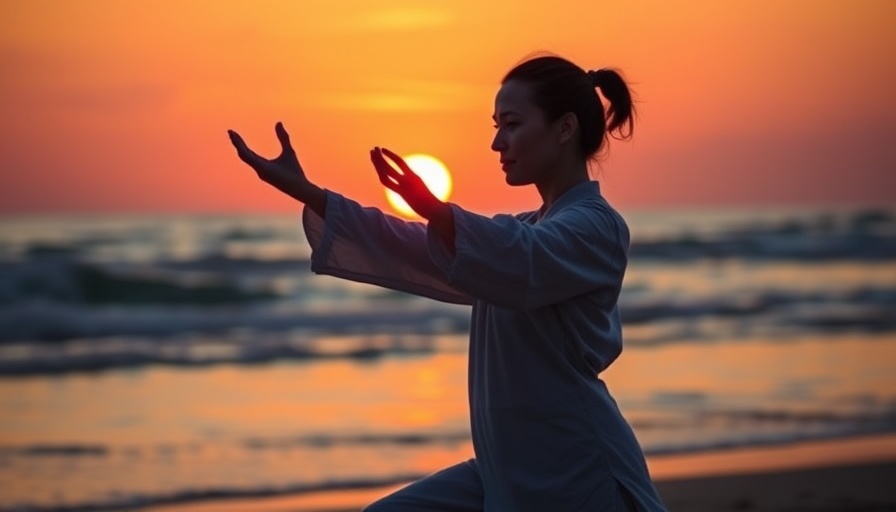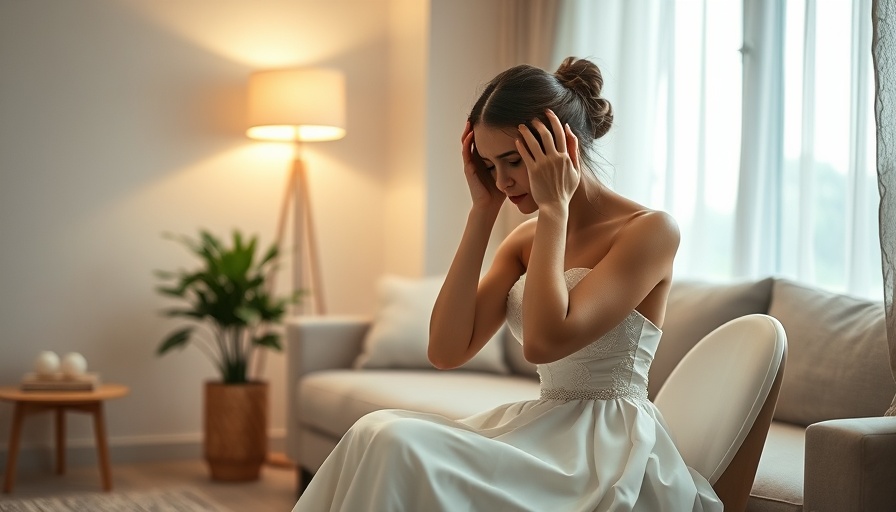
The Power of Movement: Natural Remedies for Insomnia
Insomnia is more than just an inconvenience; it affects millions across the globe, with estimates suggesting that 4-22% of people struggle to get a good night's sleep. The consequences can impact mental health, increase stress levels, and even heighten the risk of chronic conditions like dementia and cardiovascular diseases. However, recent findings suggest that what many consider as 'natural remedies' like Tai Chi, yoga, and jogging may outshine traditional pills and therapies, offering significant improvements in sleep quality and duration. This exciting research sheds light on the potential of exercise as a primary treatment strategy for insomnia.
Research Insights: Exercise Over Pills
A sizable pooled data analysis published in the BMJ Evidence Based Medicine journal emphasizes the effectiveness of various exercise modalities against insomnia. This research isn't just theoretical. It draws from 22 randomized clinical trials involving nearly 1,348 participants, spanning treatment approaches from yoga to jogging. The results were compelling: Tai Chi demonstrated notable advancements in sleep efficiency, while yoga was marked for boosting overall restfulness.
Exploring Alternatives: What Are Your Options?
Traditional treatments for insomnia, including cognitive behavioral therapy (CBT) and pharmaceutical sleep aids, while effective, come with risks. With CBT, for instance, accessibility often presents a challenge due to the shortage of trained therapists. Conversely, exercise-based approaches offer a more attainable, side-effect-free alternative for a larger audience. This analysis not only highlights the value of movement but also provides insights into the potential shifts in treatment paradigms for sleep disorders.
Embracing Movement: How to Get Started
Integrating physical activity into your routine for better sleep may sound daunting, but the great news is it doesn’t have to be. Consider starting with gentle yoga, which can serve as both a physical exercise and a calming ritual before bedtime. Tai Chi, with its focus on mindfulness and movement, can also reduce stress and promote tranquility. For those who enjoy running, even light jogging can enhance sleep quality significantly.
The Role of Sleep Hygiene in Effective Treatment
While exercise is a potent tool in the fight against insomnia, it should ideally be paired with good sleep hygiene practices. Creating a conducive sleep environment—think cool, dark, and quiet—coupled with keeping a consistent sleep schedule can significantly enhance the overall effectiveness of your efforts. Reducing screen time before bed and avoiding heavy meals in the evening are practical steps you can take for better sleep.
Future Predictions: The Expanding Role of Exercise in Health
This research paves the way for a significant reevaluation of treatment options for insomnia and other sleep disorders. As exercise gains momentum as a primary treatment strategy, we may see shifts in healthcare policies that endorse physical activity, making it a standard recommendation for managing insomnia. The integration of exercise training into standard treatment plans could revolutionize how we approach sleep health.
Common Misconceptions: Are Sleep Pills Really Necessary?
It’s a common misconception that medication is the only reliable solution to insomnia. This study points to a shift in perspective, emphasizing the importance of integrating lifestyle changes. For those struggling with sleep, there’s evidence to support that natural methods like exercise can lead to lasting improvements without reliance on medications, which often come with their own cocktails of side effects.
Real-Life Impact: Testimonials and Experiences
In conversations with everyday individuals who have turned to yoga and Tai Chi for relief from insomnia, a common theme emerges: they feel more empowered over their health when they engage in these practices. Whether it’s the rhythmic poses of yoga or the fluid movements of Tai Chi, many report not only improved sleep but also reduced anxiety and a more balanced approach to life.
As we embrace these findings, it’s vital for health enthusiasts to act. The combination of regular exercise and good sleep hygiene can open doors to not just improved sleep but also a more vibrant, healthier lifestyle. If you or someone you know is dealing with insomnia, consider exploring these beneficial strategies that blend movement with mindfulness.
Taking proactive steps toward managing insomnia can be empowering. Whether you are new to exercise or looking to enhance your routine, incorporating these practices can yield tangible benefits for your sleep health. Don't underestimate the power of simplicity; small changes can lead to significant shifts in your overall well-being.
 Add Row
Add Row  Add Element
Add Element 



Write A Comment